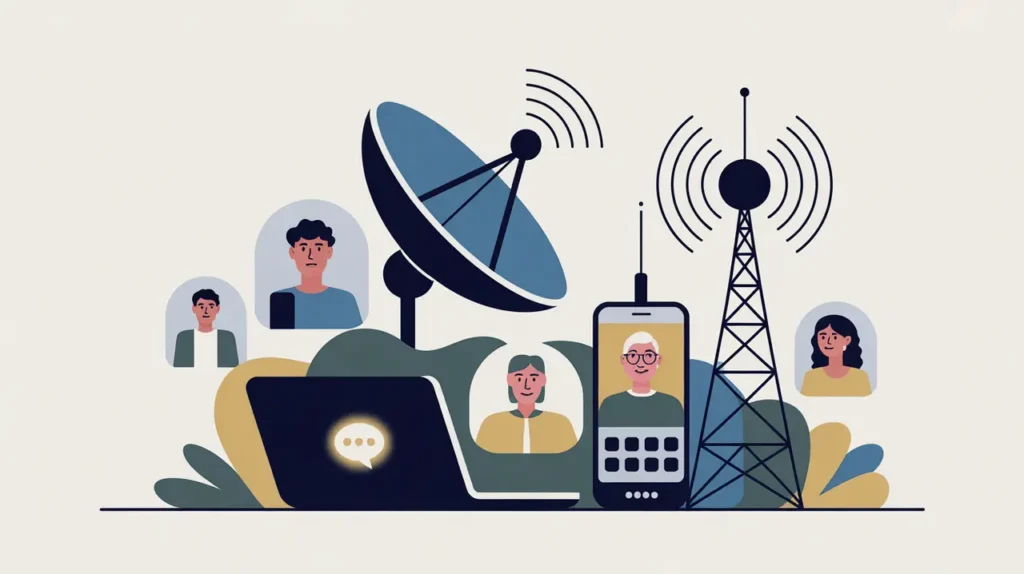Importance of Telecommunications
Telecommunications are essential for connecting people, businesses, and governments across distances, enabling the exchange of information that drives modern economies and societies. In international development, they expand access to education, healthcare, financial services, and markets, especially in remote and underserved areas. For nonprofits and social innovators, telecommunications matter because they provide the infrastructure for digital inclusion, civic participation, and economic opportunity. Their importance lies in making connectivity a foundation for growth, equity, and resilience.
Definition and Features
Telecommunications refer to the transmission of information by electronic means, including voice, data, and video. Their defining features include:
- Connectivity: linking individuals and institutions across local, national, and global levels.
- Infrastructure: networks of cables, satellites, towers, and wireless systems.
- Services Diversity: spanning voice calls, internet, broadcasting, and mobile data.
- Innovation Platform: enabling digital services such as e-commerce, e-learning, and telemedicine.
How this Works in Practice
In practice, telecommunications are delivered through public and private operators that build and maintain infrastructure. Mobile phones and broadband networks have become the dominant tools for connectivity, especially in developing regions where fixed-line infrastructure is limited. For example, mobile networks have enabled financial inclusion through mobile money services in Africa. Challenges include affordability, digital divides between urban and rural areas, regulatory barriers, and risks of surveillance or misuse.
Implications for Social Innovation
Telecommunications have significant implications for social innovation because they underpin digital transformation across sectors. Innovations such as community-owned networks, satellite internet, and low-cost mobile solutions expand access to marginalized groups. For proximate actors, telecommunications provide the foundation to participate in education, commerce, and governance. Telecommunications are essential for inclusive connectivity and sustainable development.







